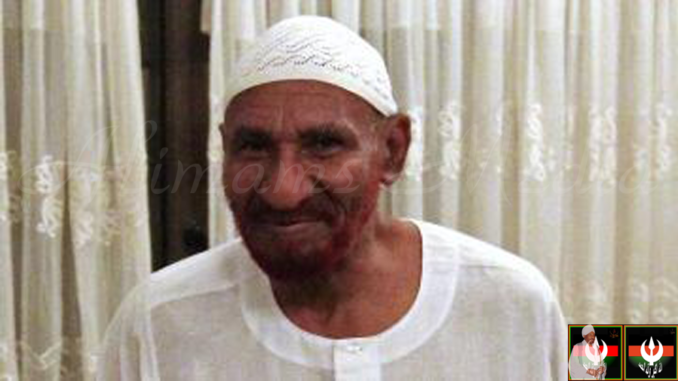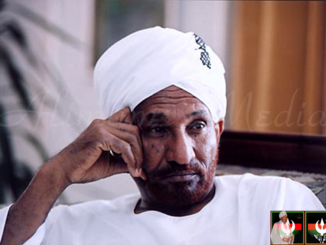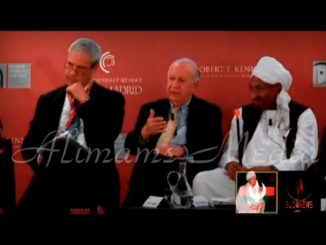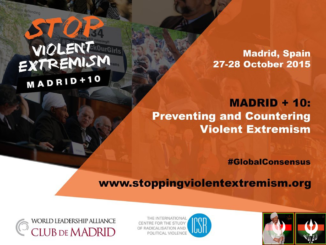
August 21, 2014 (KHARTOUM) – The leader of the National Umma Party (NUP), al-Sadiq al-Mahdi, said he expects the Sudanese government to face intense domestic pressure that would push it to accept the Paris Declaration he signed with the rebels or else face isolation in preparation for a national uprising.
“The regime has demonstrated throughout its troubled history that it usually [initially] rejects useful new ideas and accept it later under pressure,” al-Mahdi said in remarks before the European Union (EU) ambassadors in Cairo on Thursday.
Earlier this month, al-Mahdi signed with the rebel coalition known as the Sudan Revolutionary Front (SRF) the Paris Declaration which calls for ending the war and engaging in a genuine national dialogue aimed at restoring democracy in Sudan.
The declaration also expresses the readiness of the rebel alliance to implement a renewable cessation of hostilities in order to allow humanitarian access to the needy population in the war zones and to engage in the preparation of a constitutional dialogue.
Al-Mahdi told EU envoys that the two signatories represent a broad and fundamental base and that the Paris declaration represents a historic breakthrough because it included the most important aspirations of the Sudanese people.
He underscored that the accord enjoys the overwhelming support of the Sudanese people.
“Some people within the ruling party and its allies became aware of these facts, but the regime officially refused the Paris Declaration, mostly because the declaration occupied a high moral and ethical position and took the lead of the national initiative from the regime that is under multi-dimension siege,” the former prime minister said.
He explained that the means to achieve the aspirations of the Sudanese stipulated by the Paris declaration are peaceful and political means.
“Either a credible comprehensive dialogue similar to [Convention for a Democratic South Africa] CODESA under a neutral chairmanship with reliable qualifications or move people to a peaceful uprising in the face of the intransigence of the regime,” he added.
He noted Khartoum’s failure to achieve peace in Darfur and the two regions of South Kordofan and Blue Nile through the Doha and Addis Ababa forums.
Al-Mahdi pointed out that by mid-2014, it became clear that the national dialogue which was adopted by the ruling National Congress Party (NCP) is “clinically dead” and peace talks have equally stalled.
He appealed to regional and international community to study the Paris Declaration and to recognise and appreciate the breakthrough it achieved for peace and democratic transformation in Sudan and then offer its blessings.
The opposition figure said that if regional and international community is convinced about the usefulness of the Paris Declaration, they can help the process in coordination with each other and address Sudanese stakeholders on cancelling external debt, lifting sanctions, unfreeze Cotonou agreement funds to Sudan and accept the country back into the international community.
The NCP swiftly rejected the Paris declaration and said al-Mahdi was motivated by jealousy from his fading role in national dialogue in favor of Popular Congress Party (PCP) leader Hassan al-Turabi.
Last January, Bashir called on political parties and rebel groups to engage in a national dialogue to discuss ways to bring peace in the country and to discuss constitutional reforms.
The opposition alliance of the National Consensus Forces (NCF), gathering left forces, boycotted the political roundtable, asking the government first to stop war and create a conducive environment for the dialogue.
Al-Mahdi’s NUP suspended its participation in this political process after his detention last May and maintained its opposition even after his subsequent release.
Last week, the Sudanese security services arrested his daughter, Mariam, who is also his deputy as she returned from Paris following the signing of the Paris Declaration.
NCP officials suggested that she might face charges of spying and signing agreements with rebel groups particularly as the SRF is classified as an “enemy”.
Sudan Tribune




